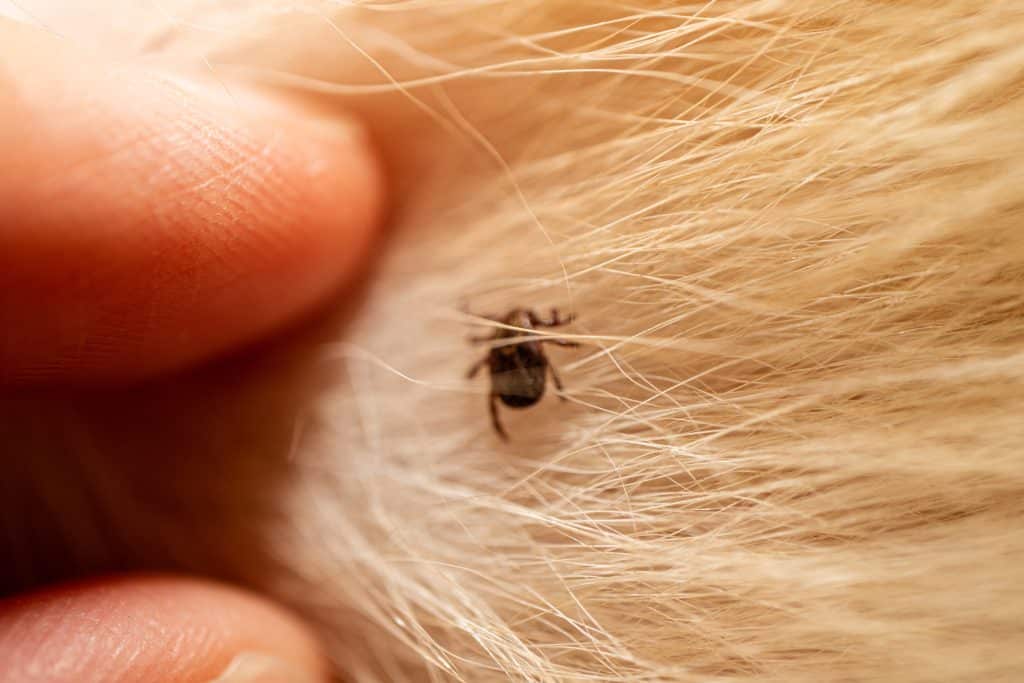If you’re a pet owner, chances are you’ve heard horror stories about parasites in cats and dogs. This common health issue can cause long-standing issues with your furry friends if left unchecked. To ensure your pets stay healthy, it’s important to understand the different types of parasites that can infect them, how to prevent these infections and the signs of parasite infection for quick diagnosis and effective treatment. To give you a better understanding, this post will look at different tips and tricks for preventing and treating pet parasites.
Types of Pet Parasites
Several parasites, including fleas, ticks, mites, lice, and worms, can affect your pets. Each of these parasites has different characteristics and can cause different health problems for our pets.
Fleas

Fleas are the most common parasites affecting pets, especially dogs and cats. They are tiny, wingless insects that live on the skin and feed on the blood of their hosts. Flea bites can cause intense itching and discomfort and, in some cases, can lead to allergic reactions or anemia.
Prevention and Treatment
To prevent fleas, it’s important to keep your pet’s environment clean and free of debris, vacuum regularly, and wash their bedding regularly. You can also use flea preventatives, such as flea collars, spot-on treatments, or oral medications.
If your pet has fleas, treating them immediately is important to prevent the infestation from spreading. Several flea treatments are available, including shampoos, sprays, and topical treatments.
Ticks

Ticks are another common parasite affecting pets, especially those who spend time outdoors. They attach themselves to the skin and feed on the blood of their hosts. Ticks can transmit several diseases to pets, including Lyme disease and Rocky Mountain spotted fever.
Prevention and Treatment
To prevent ticks, it’s important to keep your pet’s environment clean and free of debris and check them for ticks regularly, especially after spending time outdoors. You can also use tick preventatives, such as collars or topical treatments.
If you find a tick on your pet, removing it as soon as possible is important. You can use tweezers to grasp the tick close to the skin and pull it straight out. Just be sure to wear gloves and dispose of the tick properly.
Mites

Mites are tiny, microscopic parasites that live on the skin of pets. Mites can cause a wide range of pet health problems, including itching, hair loss, and skin infections. Several mites can affect pets, including ear, Demodex, and sarcoptic mites.
Prevention and Treatment
To safeguard your pet from mites, keep their environment free of dirt and clutter. Furthermore, you should avoid contact with other animals that could spread the infection. If your pet has been affected by mites, you must seek veterinary assistance immediately.
Several types of treatments are available, including topical medications, shampoos, and ointments. Depending on the severity of the infestation, your vet may also recommend an oral medication or injectable treatment to relieve your pet.
Lice

Lice are tiny parasites that live on pets’ skin, fur, and feathers. They feed on the skin’s oils and cause intense itching, irritation, and hair loss. These parasites are commonly found in cats and dogs but can also affect other animals. To spot lice, look for small, white, or tan insects on your pet’s skin and fur.
Prevention and Treatment
Sanitation is key to keeping your pet lice-free. Ensure their habitat and surrounding areas are free of clutter and debris and that contact with other potentially infested animals is avoided. If lice have already taken residence in your furry friend, reach out to a vet immediately for treatment.
Your veterinarian can help determine the best course for treating your pet’s lice infestation. Regarding treatment options, your vet might opt for topical medications or shampoos to rid your pet of lice. In some cases, they might prescribe oral medication as well.
Roundworms

Roundworms are common parasites that affect cats, dogs, and other animals. They live in the intestines, where they consume food and reproduce. Roundworms can cause various health problems, including vomiting, diarrhea, malnutrition, and anemia.
Prevention and Treatment
Regular deworming is the best way to protect your pet from roundworm infection. This should be done every 3-4 months for cats and dogs. Your veterinarian can help you determine the best dewormer for your pet’s needs.
If your pet has already been infected, treatment will likely involve a combination of medication and supportive care. Common medications used to treat roundworms include pyrantel pamoate, praziquantel, and fenbendazole. Your veterinarian may also recommend dietary changes to help your pet recover from the infection.
Hookworms

Hookworms are small, parasitic worms living in the intestines of cats and dogs. They feed on the animal’s blood and can cause severe anemia and even death if left untreated. Symptoms of hookworm infection include skin irritation, vomiting, weakness, and diarrhea.
Prevention and Treatment
Regular deworming using a broad-spectrum product is essential for keeping hookworms and other parasites away from your pet. Furthermore, keeping them away from potentially contaminated areas such as dirt and soil is best.
In case of hookworm infection, seek veterinary help right away. Treatment options may include oral medications or topical ointments applied directly to the skin. Depending on the severity of the infection, your vet may also suggest a transfusion to replace lost blood.
Tapeworms

Tapeworms are long, flat parasites that live in the intestines of cats and dogs. They can range from 4-8 inches long and feed on the animal’s food and nutrients. Left untreated, tapeworms can cause severe nutritional deficiencies as well as anemia.
Prevention and Treatment
Preventing tapeworms starts with keeping your pet away from contaminated areas and other potentially infested animals. Additionally, use a broad-spectrum dewormer regularly to reduce the chances of tapeworm infection.
If your pet does show signs of tapeworm infection, contact your vet for treatment options. Common medications used include praziquantel, albendazole, and mebendazole. Your vet may also suggest dietary changes to help your pet recover from the infection.
Preventing Parasites in Your Home

In addition to treating your pet for parasites, it’s important to prevent them from entering your home. This can include:
- Keeping your home clean and free of debris
- Vacuuming regularly, especially in areas where your pet spends time
- Washing your pet’s bedding regularly
- Using flea and tick preventatives on your pets
- Avoiding contact with other animals that may be infected with parasites
Take Steps To Prevent And Treat Pet Parasites!
Pet parasites can be a real nuisance for your furry friends. To keep your pet safe and healthy, it’s important to practice good hygiene, use preventatives, and check your pet regularly for signs of parasites. If you suspect that your pet may have a parasite infection, contact your veterinarian for treatment right away. Your pet can live a long, healthy life free of parasites with the right care and attention!